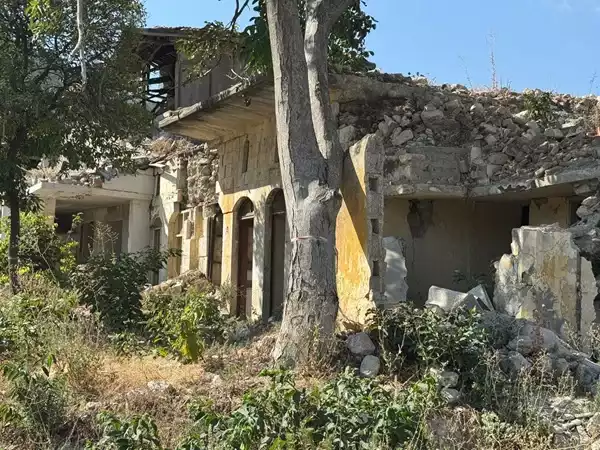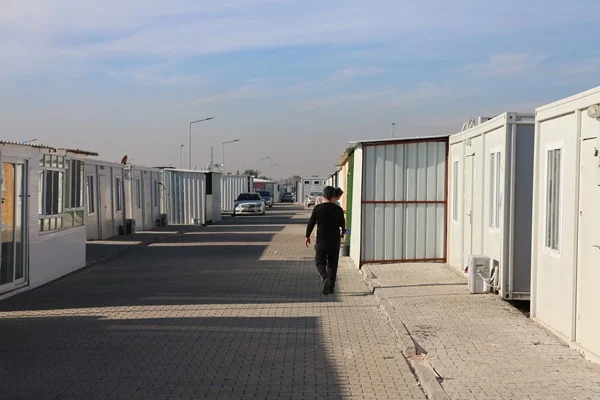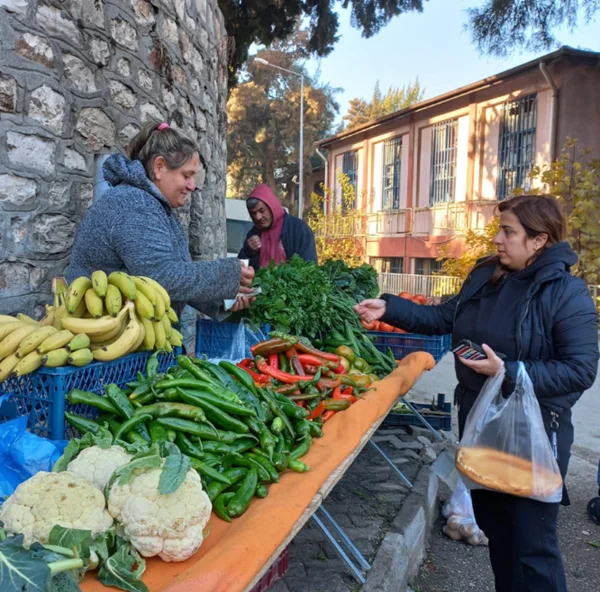Solidarity with Turkey and Syria: Fondation de France continues its support for the most vulnerable
More than two years after the earthquakes that devastated parts of Turkey and Syria, humanitarian needs remain immense on both sides of the border. From July 2 to 11, Yosr Dallegi, emergency programs officer at Fondation de France, accompanied by Pascale Moreau, former European director of the UNHCR, and Christine Robichon, former diplomat, visited the region to meet with local NGO partners. Their objective: to assess ongoing needs and supported initiatives amidst the continuing conflict in Syria, and to establish future priorities.
In Turkey, reconstruction is progressing slowly, particularly in Hatay, one of the hardest-hit regions. While some property owners have secured housing, tenants often remain relegated to container cities, distant from urban centers and essential services. "Geographical isolation creates a domino effect: children stop attending school, women face increased exposure to violence, and accessing healthcare and employment opportunities becomes nearly impossible," emphasized Yosr Dallegi. Massive inflation further exacerbates vulnerability, drastically reducing purchasing power and complicating daily life. Fondation de France prioritizes supporting these populations.
In Syria, the ongoing 14-year civil war has devastating consequences, including economic collapse, destroyed infrastructure, and persistent insecurity. Fondation de France supports several projects in southeastern Turkey, near the Syrian border, home to many of the 300,000 Syrian refugees residing there. Many refugees are unable to return to their homeland and are in dire conditions, requiring assistance in areas such as legal advice, education, healthcare, and psychosocial support. In Gaziantep, close to the Syrian border, meetings with institutional actors, including the UNHCR and the International Organization for Migration (IOM) , facilitated a deeper understanding of current issues and refined priorities for action.
 In Turkey’s Hatay region, severely affected by the earthquake, many homes remain to be rebuilt.
In Turkey’s Hatay region, severely affected by the earthquake, many homes remain to be rebuilt.
Supporting Displaced Populations
In Adıyaman, southeastern Turkey, several organizations supported by Fondation de France operate in container cities, where thousands remain displaced after the earthquakes. The MSA Association provides legal and social support for the most vulnerable, including women victims of violence, children, and refugees. They educate people about their rights, guide them to appropriate services, and assist with procedures, aiming to combat isolation, violence, and legal exclusion in an extremely precarious environment.
The SRP Association (Solidarity, Respect, and Protect) works in three container cities—Yıldırım Tepe, Üzümdalı, and Bebek Köy—combining public health initiatives, psychosocial support, and awareness campaigns against gender-based violence. Since November 2024, over 750 individuals have attended health and nutrition education sessions, 630 have participated in psychosocial discussion groups, and 300 have engaged in workshops addressing gender-based violence. SRP’s collaboration with specialized medical facilities facilitated nearly 200 medical appointments, around 40 screenings, and 80 health training sessions for community representatives.
Additionally, SHUDER, a collective of Turkish social worker associations, operates in a village of 1,200 containers in Adıyaman. They offer educational, psychosocial, and cultural support to children, adolescents, and women affected by earthquakes. Since June 2024, over 390 people have participated in workshops, collective events, and home visits. The center provides a safe space that fosters social connections and access to public services. The association also trains its teams in child protection and grief management, advocating locally for affected populations.
 The SHUDER association works in a village of 1,200 containers in Adıyaman.
The SHUDER association works in a village of 1,200 containers in Adıyaman.
Assisting Syrian Refugee Populations
In Gaziantep, near the Syrian border, local organizations assist Syrian refugees in extremely precarious situations. The Support Stabilization Unit (SSU) supports public lighting and water access projects in refugee camps and, in partnership with Space of Hope, provides agricultural and artisanal training aimed at revitalizing areas requiring complete reconstruction.
SEWAR , a long-standing Fondation de France partner, advocates for women's rights, particularly blind women, promoting their economic and social inclusion through vocational training.
Since 2023, MAPS Association has supported children, youth, and women in Gaziantep’s disadvantaged Haji Baba district, fostering their personal and professional development. Over 250 individuals have benefited from activities such as robotics, crochet, drawing, language courses, digital training, and psychosocial support sessions.
Building the Future
In Turkey’s severely impacted Hatay region, local associations focus on psychological support, education access, and economic revitalization. For instance, Mavi Kalem Association supports over 80 female entrepreneurs restarting income-generating activities in crafts, food services, and more. Women who operated businesses before the earthquake have resumed activities with association support, including restocking and equipment provision such as sewing machines and kitchen utensils.
 The Mavi Kalem association supports women entrepreneurs in finding commercial activities.
The Mavi Kalem association supports women entrepreneurs in finding commercial activities.
In Hatay, Habitat Association launched the “Let’s Heal Together” project for children aged 12 to 16, providing psychosocial support and socio-educational and artistic activities at a community center. Since January 2024, over 2,400 children have participated in creative workshops and therapeutic play, storytelling, or drawing sessions. The association collaborates with local institutions (municipalities, NGOs, schools, temporary housing centers) to enhance its impact, especially for highly vulnerable youth who have lost loved ones, dropped out of school, or have disabilities.
TO FIND OUT MORE
→ Turkey-Syria: two years of initiatives
→ Turkey-Syria: ten months of action where it really matters
→ Emergencies: rebuilding lives over the long term

